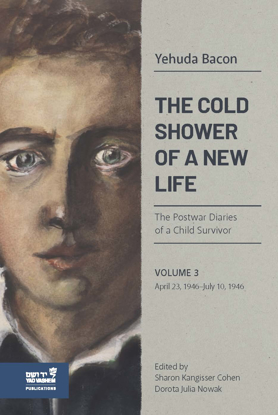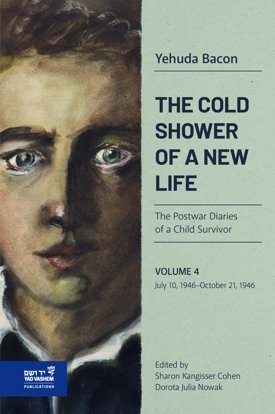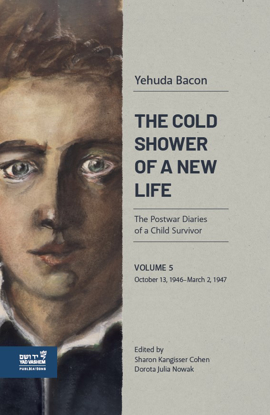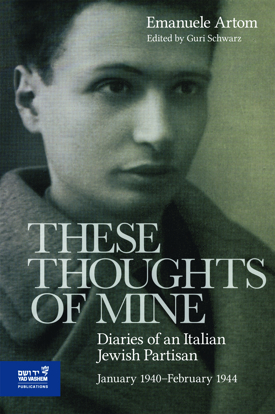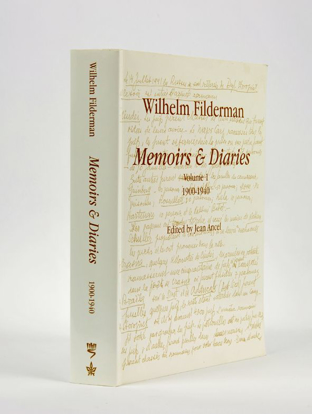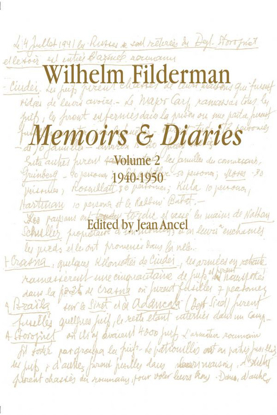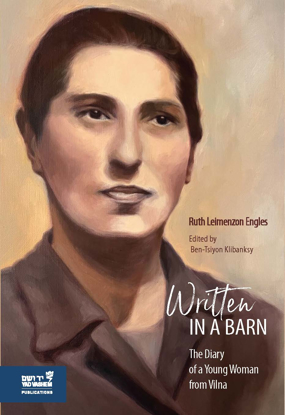Filter by:
Clear AllDiaries
The Cold Shower of a New Life: The Postwar Diaries of a Child Survivor, Volume 3 - April 23, 1946−July 10, 1946
Yehuda Bacon, Edited by Sharon Kangisser Cohen and Dorota Julia Nowak
The Cold Shower of a New Life: The Postwar Diaries of a Child Survivor, Volume 4 - July 10, 1946–October 21, 1946
Yehuda Bacon, Edited by Sharon Kangisser Cohen and Dorota Julia Nowak
The Cold Shower of a New Life: The Postwar Diaries of a Child Survivor, Volume 5 - October 13, 1946–March 2, 1947
Author: Yehuda Bacon
Editors: Sharon Kangisser Cohen and Dorota Julia Nowak
What a life it will be, Jerusalem! I know very well what the wordmeans. Like every association, it spans my entire life. Notebook 8, August 12, 1946; World-renowned Israeli artist and Holocaust survivor Yehuda Bacon began to keep a diary in July 1945, while living in a youth home in Štiřín, Czechoslovakia, shortly after his liberation. During the past seven decades, Bacon has filled over 240 notebooks. His diary is a mosaic of words and drawings through which he attempts to express his past, contemplate his present, and imagine his future.
These Thoughts of Mine: Diaries of an Italian Jewish Partisan, January 1940–February 1944
Emanuele Artom, Edited by Guri Schwarz
Wilhelm Filderman: Memoirs and Diaries, volume 2 – 1940-1952
Editor: Jean Ancel | Revised and annotated by Leon Volovici and Miriam Caloianu
Written in a Barn: The Diary of a Young Woman from Vilna
Ruth Leimenzon Engles| Edited by Ben-Tsiyon Klibansky
At last, I have gotten a notebook in which to write. I have a pencil. I will try. Maybe it will make it easier to push through the days. It’s hard for me. As soon as dawn breaks, my first thought is: how does one endure until the end of the day.
Ruth Leimenzon Engles, May 15, 1944
A few days after the Germans occupied Vilna at the end of June 1941, Ruth Leimenzon’s husband was seized by local collaborators and was never seen again. Ruth, the sole survivor of her murdered family, managed to survive two years in the ghetto using her intelligence and common sense, helped by luck and perhaps miracles. Just two days before the ghetto’s liquidation in September 1943, Ruth escaped with the help of a Christian woman, her former boss’ wife, and found a hiding place in a barn on a farm 20 kilometers from Vilna, where she hid for nearly a year. During the last two months in the barn, Ruth wrote a diary in Yiddish describing her three-year ordeal.





